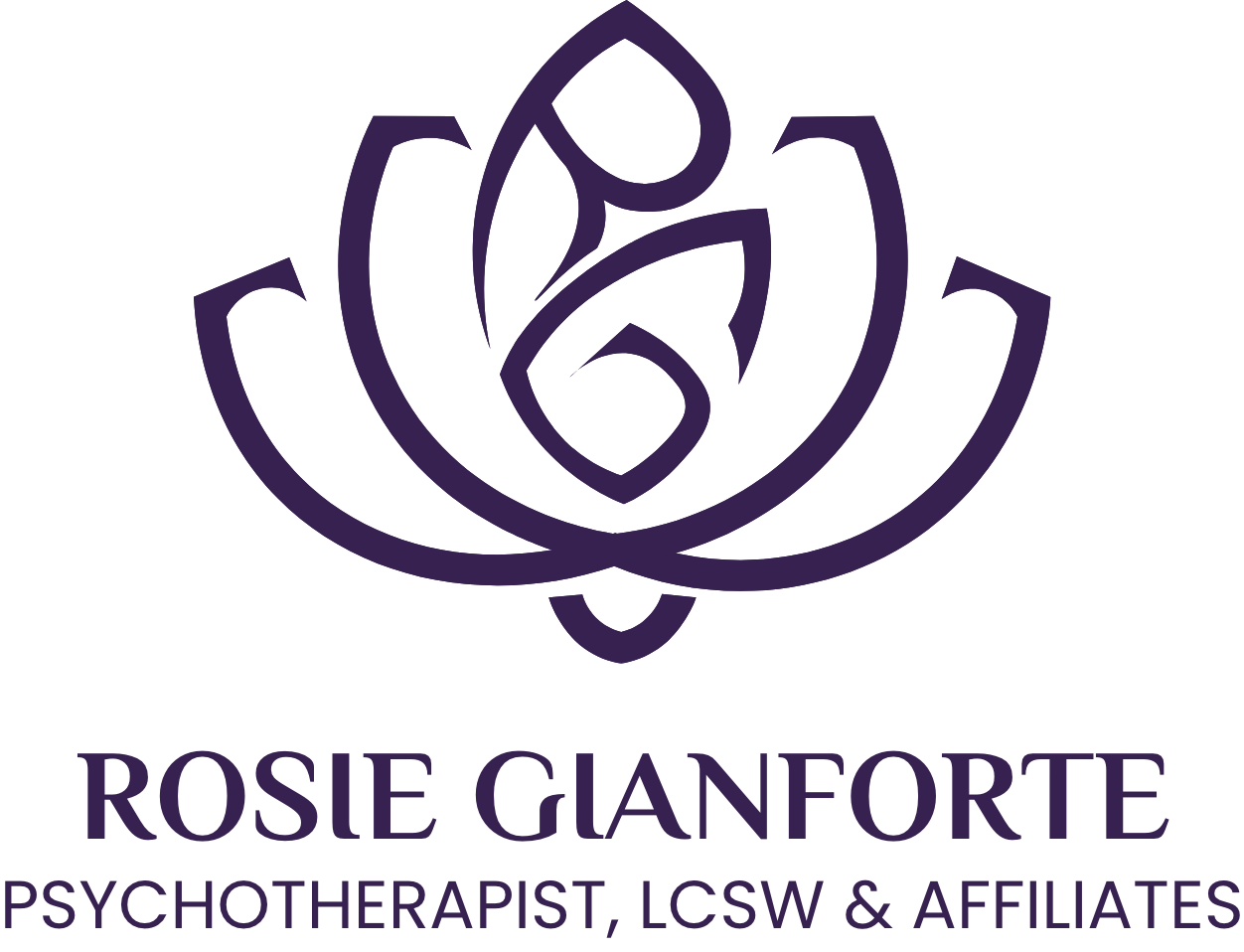Welcome, we’re so happy you’re here. It's a brave decision to seek therapy and the experience can be the greatest gift you give yourself.
Our Approach
“We offer a relaxing space where you can reflect and focus on personal growth and positive change. We provide positive feedback to help you address current life challenges and resolve long standing issues. Often the goal of therapy can be as simple as becoming aware of patterns and understanding how your motivations are linked to certain behaviors.”
- Rosie Gianforte, Founder, LCSW
Our Services
-
Discernment counseling is a short-term form of therapy designed to help couples who are considering divorce or separation. It focuses on assisting each partner in gaining clarity about their feelings and making an informed decision about the future of their relationship. The goal is to help individuals understand their motivations, concerns, and hopes, ultimately leading to a choice between continuing the relationship as it is, moving towards divorce, or pursuing couples therapy.
-
Relationship changes and transition counseling is a type of therapy that helps individuals and couples navigate significant life transitions and adjustments, such as marriage, divorce, becoming parents, retirement, or relocating. This form of counseling aims to provide emotional support, enhance communication skills, and help individuals and couples cope with the challenges and uncertainties that come with these changes. The counselor assists clients in managing their emotions, fostering resilience, and developing strategies to adapt effectively to the new phase of life.
-
Parenting and family counseling is a type of therapy that focuses on addressing challenges within family dynamics and helping parents navigate various parenting issues. This form of counseling aims to improve communication, understanding, and cooperation among family members. It can address a wide range of concerns, including parenting styles, discipline strategies, sibling conflicts, blended family issues, communication breakdowns, and managing life transitions. The counselor works with families to identify underlying issues, develop healthy coping mechanisms, and foster positive relationships within the family unit.
-
Counseling for depression and anxiety, often referred to as psychotherapy or talk therapy, is a treatment approach that helps individuals manage and alleviate symptoms of these mental health conditions. Therapists work with clients to explore their thoughts, feelings, and behaviors, aiming to identify underlying causes and triggers for depression and anxiety. Through various therapeutic techniques, such as cognitive-behavioral therapy (CBT), mindfulness, and supportive counseling, individuals learn coping strategies, challenge negative thought patterns, and develop skills to better manage their symptoms. The counselor provides a safe and supportive environment where clients can express themselves, learn effective problem-solving skills, and work towards achieving improved emotional well-being. In some cases, counseling might be combined with other treatments, such as medication, for a comprehensive approach to treatment.
-
Counseling for substance use disorders and alcohol, often known as addiction counseling or substance abuse therapy, is a form of treatment that assists individuals in overcoming addiction and building a healthier lifestyle. The main goal is to help clients understand the root causes of their substance use, develop strategies to manage cravings and triggers, and establish a solid foundation for recovery.
Therapists employ various evidence-based approaches, such as cognitive-behavioral therapy (CBT), motivational interviewing, and contingency management, to address the psychological, emotional, and behavioral aspects of addiction. Clients learn coping skills, relapse prevention techniques, and healthier ways to cope with stress and life challenges.
Additionally, counseling for substance use disorders often involves exploring the individual's motivation to change, setting achievable goals, and fostering a support network. It's important to note that addiction counseling can be delivered individually, in group settings, or as part of a comprehensive treatment program that may include medical interventions and support from other professionals. The goal is to help clients achieve and sustain recovery, enhance their overall well-being, and regain control of their lives. -
Stress reduction coping skills counseling is a type of therapy aimed at helping individuals develop effective strategies to manage and cope with stress in their lives. The counselor works with clients to identify sources of stress, explore how stress manifests physically and emotionally, and then teaches practical techniques to handle stress more adaptively.
These coping skills can include relaxation techniques like deep breathing, mindfulness meditation, progressive muscle relaxation, and guided imagery. The counseling process might also involve teaching time management, problem-solving, and assertiveness skills to better handle stressors. Clients learn to recognize negative thought patterns and replace them with more balanced and realistic thinking.
The overall goal of stress reduction counseling is to empower individuals to respond to stress in healthier ways, build resilience, and improve their overall emotional well-being. By learning and practicing these coping skills, clients can reduce the negative impact of stress on their mental and physical health, leading to a more balanced and fulfilling life. -
LGBTQ issues and transition counseling is a specialized form of therapy that provides support, guidance, and understanding to individuals who are navigating challenges related to their sexual orientation, gender identity, and gender transition. This type of counseling acknowledges the unique experiences and struggles that LGBTQ individuals may face, including societal stigma, discrimination, and internalized biases.
For individuals undergoing gender transition, the counseling process can involve exploring their gender identity, discussing their feelings and desires related to transitioning, and addressing the emotional and psychological aspects of the transition journey. This may include discussions about coming out, managing relationships, and handling social and workplace situations.
The counselor in LGBTQ and transition counseling aims to create a safe and affirming environment, where clients can freely express themselves and receive guidance on coping with the challenges they encounter. Therapists might also work with clients to foster self-acceptance, build resilience, and enhance their overall mental health and well-being. The ultimate goal is to empower clients to live authentically and thrive in their journey of self-discovery and personal growth.
Meet Our Team
-

Rosie Gianforte
FOUNDER, LCSW
-

Jennifer Byrne
LCSW
-

Sara Solheim
LCSW
-
Jennifer Brandenberger
LCSW
-

LaKeshia Carr
LMHC, LCPC
-

Juliet Bond
LCSW



